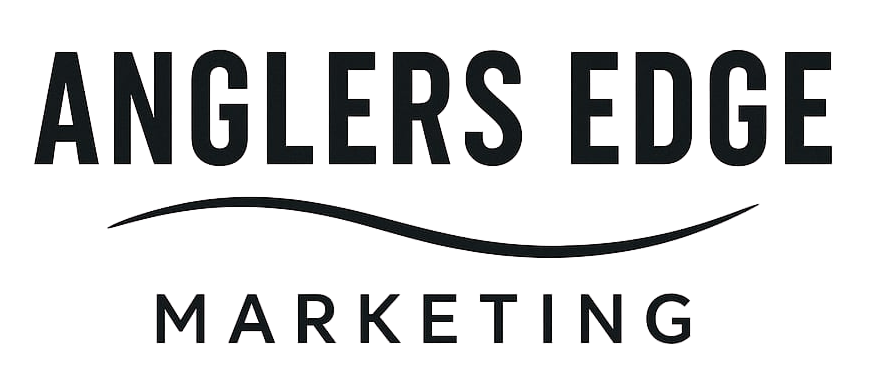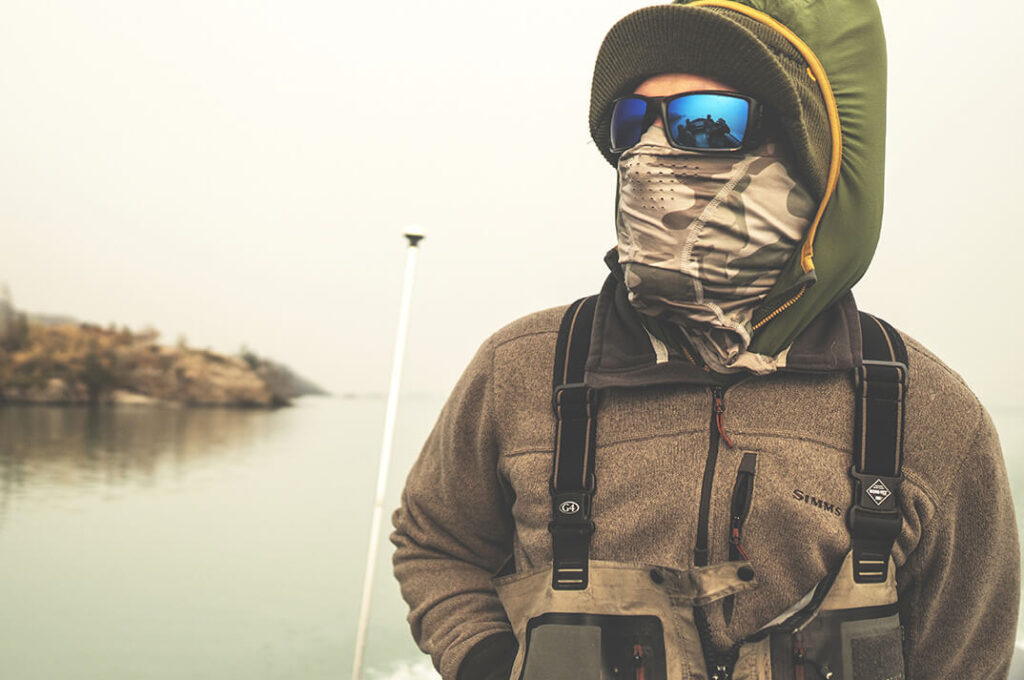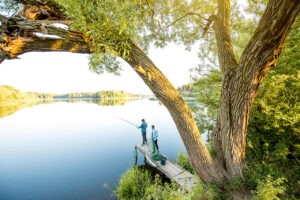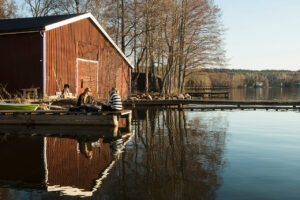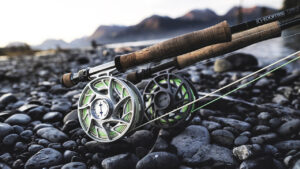Disclaimer, I spent the majority of my career as a trout guide, with about 80% of my focus on fly fishing versus conventional fishing. That’s where my experience lies. Your path may be very different, but there’s something in this article for everyone.
Becoming a guide isn’t for the faint of heart. Let me be blunt—it’s tough to make it. I spent 14 years guiding, 8 years in lodge management, and 9 years running my own guide service. I’ll say it again: making it as a guide is hard. Now, I know this might sound contradictory, but hear me out—it’s also easier now than ever.
How can both be true? Well, the rise of digital marketing and the accessibility of social media has made it easier to get your name out there, to connect with clients, and to build a brand. The question you need to ask yourself, though, is this: are you willing to do what it takes to stand out? That’s what separates those who succeed from those who don’t. It’s not just about your skills in the boat. The real work happens off the water—building your business, marketing yourself, and doing all the things that no one told you about when you first dreamed of becoming a guide. Because, truthfully, that’s what separates good fishermen from good guides.
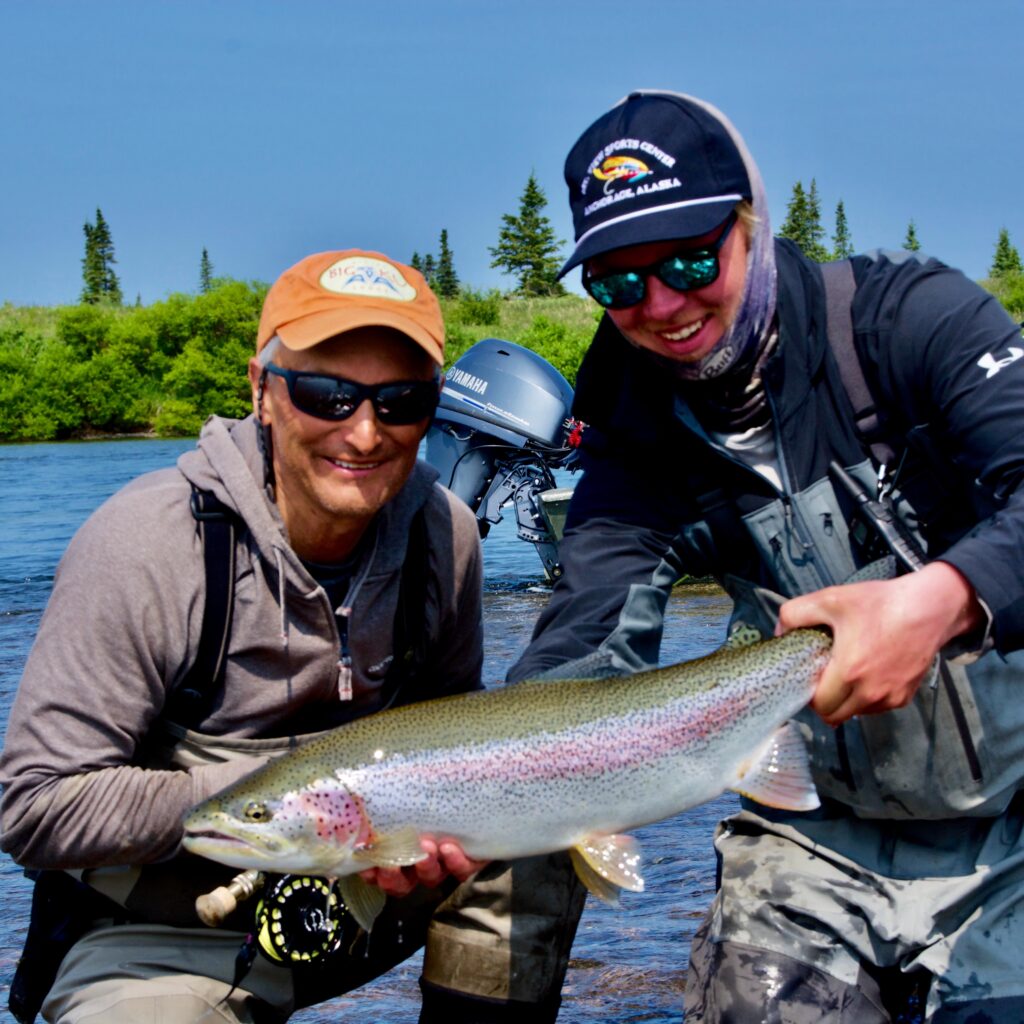
What Being a Fishing Guide Really Means
I’ve seen it year after year—some guy gets in a boat, convinced he’s going to be the world’s best guide, only to burn out after a season or two. Why? Because they never learn the real game of guiding: fishing through clients. If you can’t find joy in the mental aspects of fishing and using other people to catch fish, let me tell you, you’re in for a lot of frustration and disappointment.
Fishing is 90% mental and 10% physical. I’m a headhunter, it was always about catching giants and I was fortunate enough to hold a lot of them over the years. I caught those fish—someone else might’ve reeled them in—but I did the work that put those fish in the boat. If you think fishing is just about luck, well, there’s the door. You’re in the wrong place.
You must get past holding the rod yourself, and I know that sounds crazy, but I’ve seen so many guys who just can’t do it. Truthfully, I didn’t care about reeling in the fish. What mattered to me was finding the pattern, locking it in, and training my clients to fish so that I could put a giant in the boat. I would even use the boat position and the current to give the angler the best chance ensuring positive pull (not pulling the hook out of the fishes mouth) and using the boat to fight the fish so I had to worry less about the client messing it up. That’s what made me happy, and I was perfectly content using other people to do it. That’s the game. And if you don’t love that part, guiding might not be for you.
Becoming A Guide
Here’s my advice to anyone starting out: work for someone else for the first few years. Don’t jump straight into starting your own business—you probably won’t make it. Not because you’re not capable of being a guide, but because you simply don’t know anything yet. If you’re starting in the fly fishing industry as I did, it’s pretty easy to get a summer gig somewhere guiding. If you’re willing to travel, it’s even easier to get a job. I went to Alaska, but all the major fly fishing hubs have high turnover (the burnout is real), so they’re always looking for guides. It’s a great way to learn the ropes, gain experience, and see if guiding is truly for you.
Certifications
If you want to run a boat—any motorized boat—you need to get your Coast Guard OUPV (Operator of Uninspected Passenger Vessels) license. It makes everything easier when you reach out to potential employers if you’re already squared away. Every guide is going to need four key things: a Coast Guard license, a guide license, First Aid certification, and CPR certification.
Depending on where you work, you may have to take a course for the guide license, but most outfitters will handle this for you. If you’re doing drift-only or wade fishing trips, you don’t need the Coast Guard license, but I still recommend getting it. Having that certification opens a lot more possibilities for your career, and it shows you’re serious about your craft.
Guide School
Guide schools are a great option if you’re just starting out. I went to one in Montana back in 2009, when I had no idea what I was doing. All I knew was that the “real world” wasn’t for me, and if I didn’t start guiding soon, I was going to end up homeless.
The guide school I attended was awesome. It was my first time being around professional guides, and I still remember the guy who ran it—Ron Meek. For me, the biggest advantage wasn’t just learning how to guide; it was the job placement program. Ron helped me craft a fishing resume (yes, that’s a thing) and ultimately land a job in the industry.
If you have no idea where to start, guide school could be a fantastic option. It provides not only the skills you need but also connections and job placement opportunities to kick-start your career.
The Other Side of Guiding
The real work behind being a successful guide happens outside the boat. It’s all about building your personal brand. A strong brand is what’s going to allow you to do this for the long haul, and trust me, a lot of guides learn this the hard way.
These days, it’s easier than ever to become a content factory. We’re in a “sexy” business. There are countless people stuck at work wishing they were on the water with you. Instead, they turn to the internet to consume fishing content. Why not your content? Let’s break down some content types that will help build your brand and set you apart.
Fishing Reports
I’ll be honest—I hate fishing reports. How many times have you been to a site clicked on fishing reports at the top of the page only to find they haven’t been updated in years? Who really wants to go online and tell everyone where you’re catching fish? If you work offshore or a large body of water, fine, there’s plenty of space out there, but if you’re on a river, all you’re doing is burning spots. Clients aren’t searching for fishing reports, either. The only ones looking at them are anglers hoping to get some intel before their next trip. Sure, it might help with SEO, but so can a well-crafted blog where you engage with your potential clients.
Social Media
This is where you really need to put in the work. I always tell guides, “You need to post so much that your friends and family unfollow you.” Okay, maybe not literally, but close enough. You need to post A LOT. Almost everything you do is a fantasy for most people sitting behind a desk all day. They want to see you cleaning the boat, rigging rods, tying flies—whatever it is that makes your day, they want a glimpse of it. Notice how I haven’t even mentioned fish pictures yet? Of course, they’re important, but everyone’s posting those. Be different. Add depth to your brand by teaching people. That’s what being a guide is all about.
YouTube
I know YouTube is technically a social media platform, but I wanted to make a special point to talk about it. Get yourself something to edit videos, or hire someone if you need to, but start making videos and shorts. If you’re not, you’re either crazy—or worse—lazy. You’re on God’s movie set every single day, and you can’t take the hint and start filming? Yeah, it’s going to suck at first because you’re going to suck at it. But that’s okay. You don’t need to create productions on par with the top 1% of YouTubers. Just start making content now. UGS (User Generated Content) is want people want so much so that a lot of major brands have sided on using cellphone videos of client experiences rather than investing millions into commercials.
Your Digital Presence
Yes, I’m in the business of marketing, and this may sound a little biased—but one of the most important things you can do as a guide is create a marketing strategy. Write down how you’re going to use each platform, what your content production looks like, and what types of content you plan to produce. This is what fills up your bookings. It doesn’t matter how good you are at fishing if no one knows about you.
Here comes a bit of a shameless plug, but let’s be real—you’re already on my website. One of the first things you need is a website. Not just any website, but a real website. I see so many guides with sites that get zero traffic. Literally zero. They’re doing nothing to drive people there, and they aren’t ranking for anything. It’s just wasted space on the internet that could be making you money.
That’s where we come in. You’re better off hiring someone like us to build it for you. We help you rank in search engines, and we include online booking in all our sites, plus they’re affordable. Ok, sales pitch over—but seriously, everything starts online. We search for everything on the internet, so you need a strong website to make your business visible.
Closing Thoughts
Becoming a successful fishing guide is no easy feat. It takes dedication, patience, and a deep love for the craft. While it’s tempting to jump right in and start your own outfit, my advice is to take your time, learn from others, and build a foundation before going solo. Whether its gaining experience working for an established operation, attending a guide school, or investing in the certifications you need, every step prepares you for the challenges ahead.
The reality is, guiding is about more than just fishing—it’s about mastering the mental game, creating memorable experiences for clients, and building a brand that keeps your business afloat year after year. If you’re willing to do the hard work both on and off the water, you’ll find that guiding can be one of the most rewarding careers out there.
Remember, fishing may be 90% mental and 10% physical, but success as a guide is 100% about dedication. Good luck on your journey, and if you ever need help building your brand or getting the digital side of your business in order, you know where to find me.
